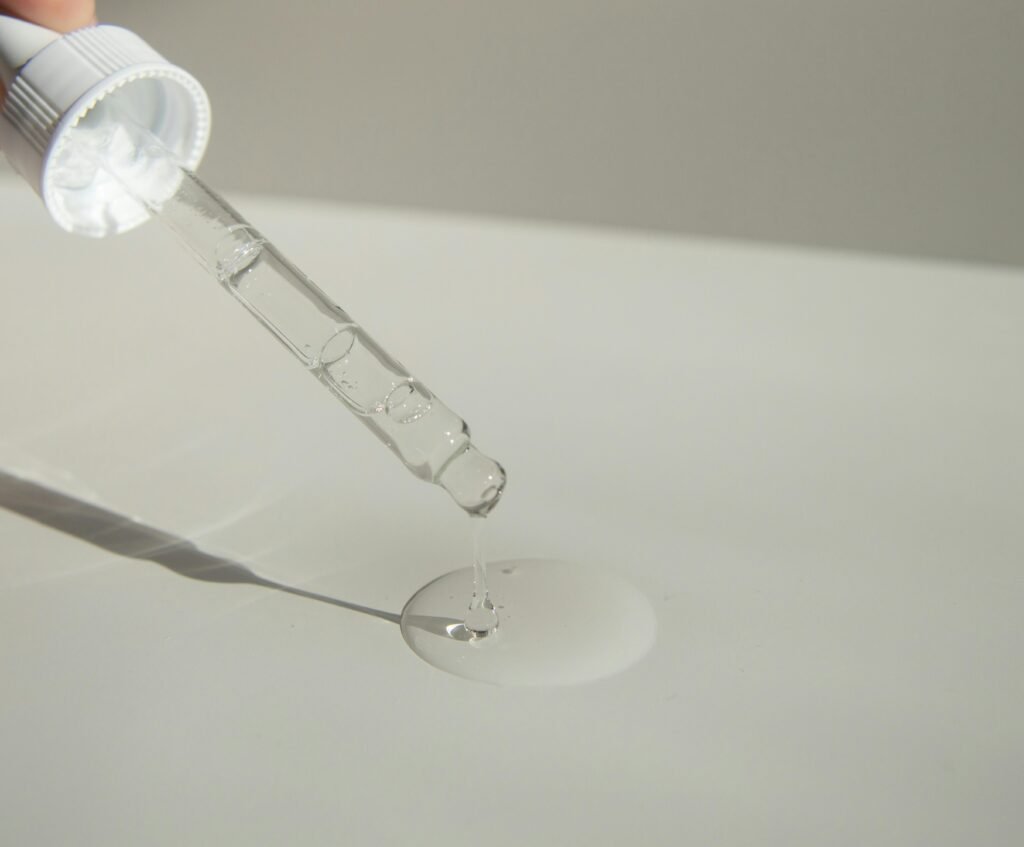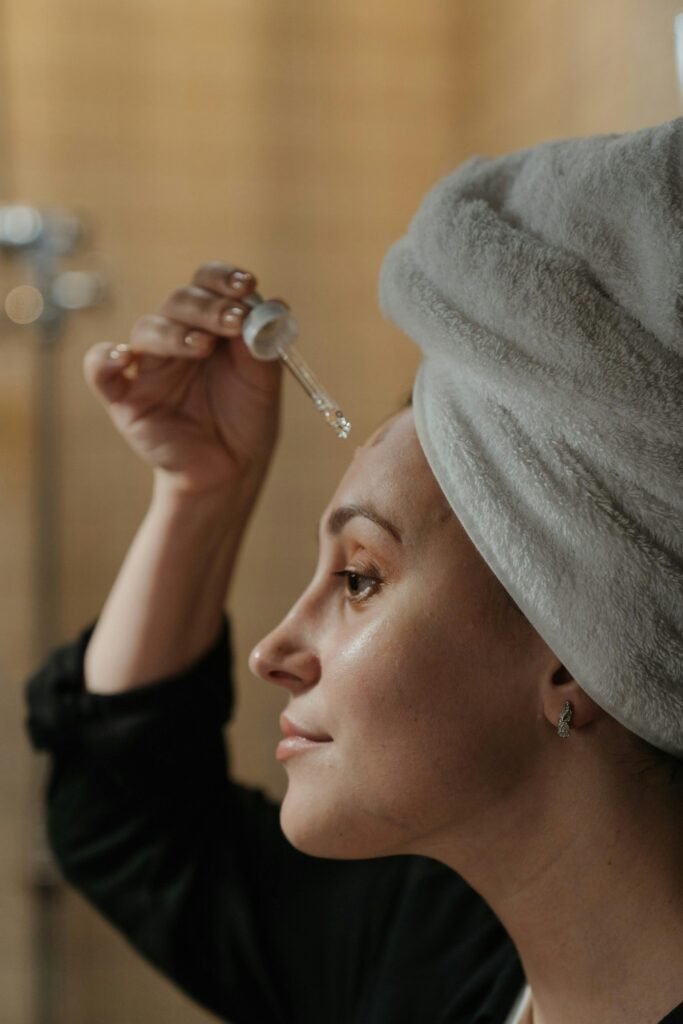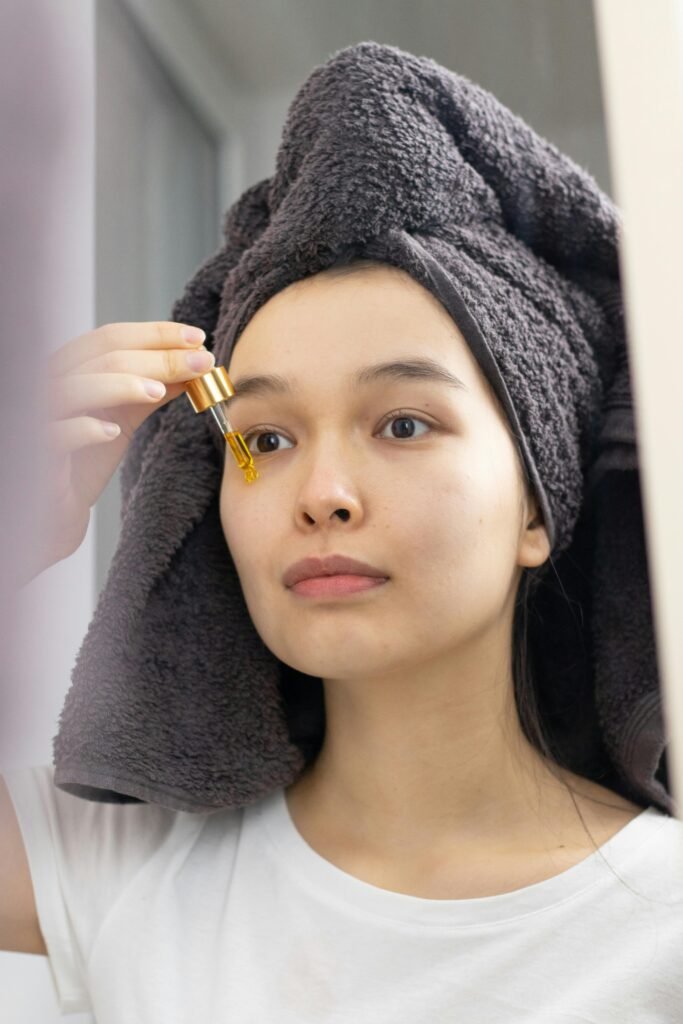Table of Contents
ToggleUnveiling the Power of Vitamin C Serum

Vitamin serums has revolutionized skincare routines worldwide, offering a plethora of benefits for skin health and vitality. Renowned for its potent antioxidant properties, this powerhouse serum is cherished for its ability to brighten the complexion, diminish hyperpigmentation, and stimulate collagen production, resulting in a more youthful and radiant appearance.
Benefits of Vitamin Serum

Enhancing Skin Radiance: serums effectively brightens the complexion, giving your skin a luminous glow and reducing the appearance of dullness and fatigue.
Diminishing Hyperpigmentation: The potent antioxidant properties of vitamin C help to fade dark spots, sunspots, and age spots, resulting in a more even-toned complexion.
Stimulating Collagen Production: Vitamin C promotes collagen synthesis, improving skin elasticity and firmness while reducing the appearance of fine lines and wrinkles.
Integrating Vitamin C Serum into Your Skincare Routine:
Additional Products
To complement the benefits of vitamin serum, consider incorporating other skincare products enriched with this potent ingredient into your daily regimen. Here are some recommended additions:
Start your skincare routine with a vitamin C-infused cleanser to effectively remove impurities, excess oil, and makeup while brightening and revitalizing the skin. Look for formulas that contain stable forms of vitamin C, such as ascorbic acid or sodium ascorbyl phosphate, to maximize efficacy without compromising stability.

After cleansing, follow up with a vitamin C toner to rebalance the skin’s pH levels, refine pores, and enhance the absorption of subsequent skincare products. Opt for alcohol-free formulations with soothing botanical extracts to hydrate and calm the skin while delivering a potent dose of antioxidant protection.
Lock in the benefits of vitamin serum by applying a vitamin C-infused moisturizer to hydrate, nourish, and protect the skin throughout the day. Choose lightweight, non-comedogenic formulas that provide long-lasting hydration without leaving a greasy residue, ideal for all skin types, including oily and acne-prone.

Treat the delicate eye area with a vitamin C eye cream to target dark circles, puffiness, and fine lines while brightening and firming the skin. Look for gentle, fragrance-free formulas specifically designed for the sensitive eye area to minimize the risk of irritation and maximize results.
Incorporating these additional products into your skincare routine can amplify the benefits of vitamin serum, resulting in a brighter, more radiant complexion with improved tone, texture, and overall skin health. Remember to patch test new products before full application and consult with a dermatologist if you experience any adverse reactions or concerns.
Causes of Redness After Using Vitamin C Serum
Skin Sensitivity: Individuals with sensitive skin may experience redness or irritation after using vitamin serum, as their skin’s barrier function may be compromised.
High Concentration: Using a high concentration of vitamin C or applying the serum too frequently can overwhelm the skin, leading to redness and irritation.
pH Level Imbalance: Deviations from the ideal pH range of 2.5 to 3.5 in vitamin serums may induce redness and discomfort, affecting the skin’s tolerance to the product.
Improper Application Techniques: Applying excessive pressure or vigorously rubbing the serum onto the skin can irritate the skin’s surface, contributing to redness and inflammation.

Prevention Tips to Minimize Redness
Patch Test: Before applying the serum to your entire face, perform a patch test on a small area of skin to check for any adverse reactions.
Gradual Introduction: Start with a lower concentration of vitamin C serum and gradually increase it over time to allow your skin to acclimatize to the product.
Moderate Application: Apply a small amount of serum to clean, dry skin, focusing on areas requiring attention, such as dark spots or hyperpigmentation.
Limit Usage Frequency: Adhere to the recommended usage instructions and avoid overusing the serum, as excessive application can overwhelm the skin.
pH Consideration: Choose vitamin serums with a pH level within the optimal range of 2.5 to 3.5 to minimize the risk of irritation and redness.
Gentle Application: Apply the serum using gentle, circular motions, avoiding harsh rubbing or pulling that may irritate the skin.
Hydration Protocol: Follow up with a hydrating moisturizer to seal in moisture and soothe the skin, enhancing its barrier function.
Sun Protection: Apply sunscreen daily to protect your skin from UV damage, which can exacerbate redness and irritation.
Soothing Redness After Using Vitamin C Serums
Cool Water Rinse: Gently rinse your face with cool water to alleviate inflammation and diminish redness.
Cold Compress Application: Apply a cold compress or ice pack wrapped in a clean cloth to the affected area for a few minutes to reduce swelling.
Moisturizer Utilization: Opt for a gentle, fragrance-free moisturizer containing soothing ingredients such as aloe vera or chamomile to hydrate and calm the skin.

Consultation with a Dermatologist
If redness or irritation persists despite these interventions, seek guidance from a dermatologist. They can assess your skin’s condition and recommend personalized strategies for managing redness and preventing future occurrences.
Conclusion:
Embrace the Benefits of Vitamin C Serum
Incorporating vitamin serum into your skincare routine can yield remarkable benefits for your skin’s health and appearance. By understanding the potential causes of redness and implementing effective prevention tips, you can enjoy the glowing, radiant complexion you deserve.


Pingback: When to Use Serum: 5 Nighttime Rituals for Glowing Skin
Pingback: Best Hydrating Serums Ever, 5 Skin Saviors Serums